Hello, and welcome to CONSULT8IT! We’re thrilled to have you here.
If you’ve landed here, chances are you’re curious about the magic of marketing automation.
As a senior marketer, it can be challenging to meet the expectations of implementing the latest marketing tools while also ensuring optimal efficiency, agility, scalability, and security. This is where automation in marketing comes into play, offering transformative potential to enhance efficiency, reduce costs, and improve customer experience. By implementing automation, marketing professionals can increase leads and revenue, ultimately achieving better performance and engagement.
CONSULT8IT focusses on enabling businesses through bespoke marketing consulting services that contribute to achieving business success. Our offerings include:
- Marketing Strategy & Training
- Content Creation & Marketing Campaigns Design
- Marketing Operations & Automation
As well as:
- Technical Architecture Consultancy
- Software Architecture Consultancy
- Bespoke Software Development & DevOps Consultancy
Our services help businesses thrive by achieving their goals and overcoming obstacles through improved IT and Marketing strategies essential for long-term success and growth.
We often like to take deep dives into current trends, market challenges, and the technological aspects that most businesses face today.
Today, we’re diving into the common challenges that come with marketing automation and, more importantly, practical solutions to overcome them. Whether you’re a seasoned marketer or just starting out, we’ve got tips and tricks to help you tackle those obstacles with confidence.
So, grab your favourite drink, kick back, and let’s get started.
Understanding Common Marketing Automation Strategy Challenges
When it comes to marketing automation, it’s essential to recognise the challenges that often come with the territory. These barriers can interfere with your efforts if left unaddressed. Let’s explore the key challenges you might face and discuss how to tackle them effectively.
Understanding how does marketing automation streamline processes and impact the customer journey can help you leverage its full potential.
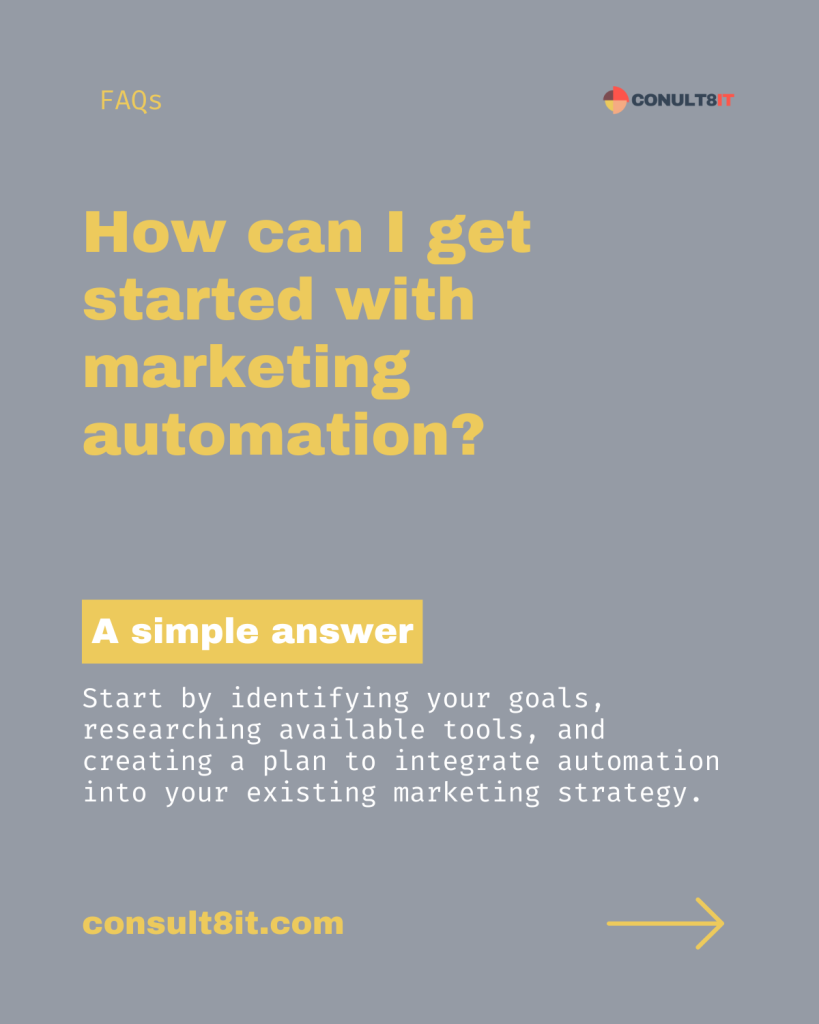
Lack of Time and Resources
You may find that time is always slipping through your fingers, especially when juggling multiple marketing projects, campaigns, and other promotional initiatives. This is a common issue for many marketers who feel overwhelmed by their workload. Marketing automation can help eliminate repetitive tasks, allowing marketers to focus on more strategic initiatives. The reality is that while marketing automation can save you time in the long run, getting it set up properly requires an initial investment of effort.
Poor Integration with Existing Systems
You must ensure that your marketing automation tools integrate smoothly with your existing systems, such as your CRM, content management system, and analytics platforms. Marketing automation platforms, with their core functionalities and capabilities, streamline marketing efforts through automation, improve efficiency, and enhance customer engagement by leveraging marketing data for personalized communication and lead generation. When these systems don’t communicate effectively, you risk creating data silos, which can impede your ability to get a comprehensive view of your marketing efforts.
Inadequate Data Quality and Management
Let’s face it: good marketing starts with good data. If you’re struggling with outdated information or inconsistent data entry, your marketing efforts may falter. Many businesses overlook the importance of maintaining data quality, leading to wasted resources and missed opportunities. Marketing automation work involves collecting and analysing customer data from various interactions to create a comprehensive view of each customer.
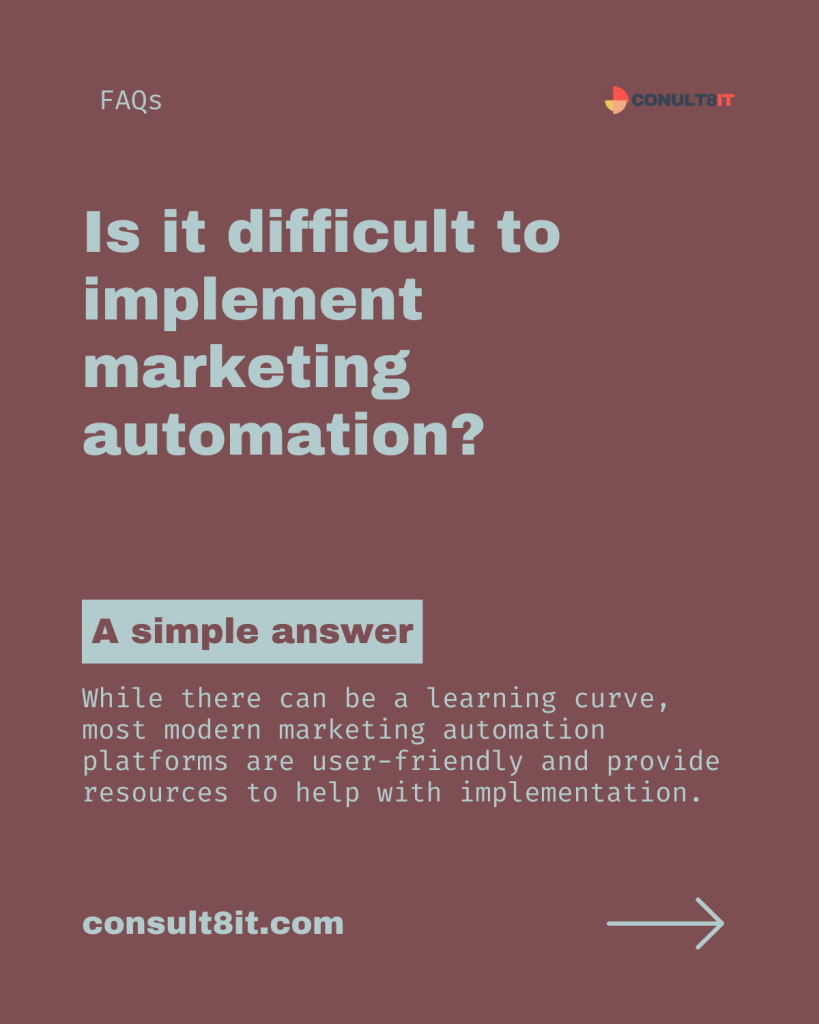
Insufficient Training and Support
Even the most advanced marketing automation software, with its capabilities in managing repetitive tasks and streamlining workflows, won’t deliver results if your team doesn’t know how to use them effectively. Insufficient training and support can lead to underutilisation and frustration, ultimately impacting your marketing success.
Over-Reliance on Automation
While marketing automation makes processes more efficient and effective, allowing marketing teams to focus on strategic initiatives, relying on it too heavily can lead to impersonal interactions and a lack of connection with your audience. You must remember that automation is a tool to enhance your marketing, not replace the human touch.
Practical Solutions to Overcome Each Challenge
Now that we’ve outlined the common challenges that come with marketing automation, let’s proceed to some practical solutions that you can implement right away. These strategies are designed to help you navigate the challenge and make the most of your marketing automation tools. The benefits of marketing automation include nurturing leads, customer acquisition, and enhancing digital marketing efficiency.
Lack of Time and Resources
We understand that time and resources are often in short supply. But don’t worry! You can turn this around with some smart prioritisation and the use of templates. A well-defined marketing automation strategy is crucial to maximise assets and enhance engagement with prospects and customers.
What You Should Do:
- Prioritise Your Tasks: Start by identifying which marketing tasks will have the greatest impact on your goals. Focus on automating these key areas first. For example, if email marketing is your top priority, begin with automating your newsletter campaigns or follow-up emails.
- Utilise Templates: Many marketing automation tools come with pre-built templates for emails, social media posts, and landing pages. Take advantage of these templates to save time and maintain consistency in your branding. Customising these templates can be a quick way to get quality content out without reinventing the wheel each time.
Poor Integration with Existing Marketing Automation Tools
To avoid the headaches that come with poor integration, it’s essential to choose tools that fit well within your existing tech stack and to plan accordingly. A marketing automation solution improves employee productivity by eliminating manual tasks, allowing teams to concentrate on strategic initiatives.
What You Must Do:
- Choose Compatible Tools: Before selecting a marketing automation platform, conduct thorough research to ensure it integrates smoothly with your current systems, such as your CRM and analytics platforms. Look for tools that offer native integrations or have a solid API for custom connections.
- Proper Planning: Involve your IT team in the planning phase to map out how the new automation tools will fit into your existing workflows. Set aside time for thorough testing before rolling out any new system to ensure everything works seamlessly together.
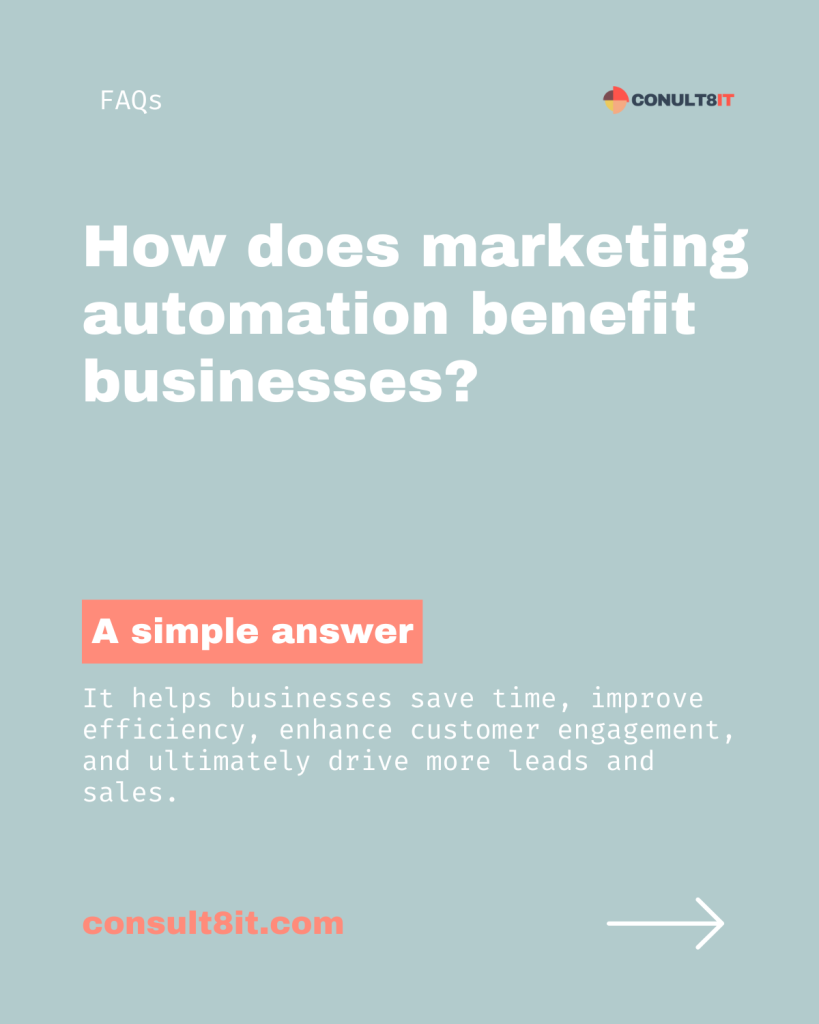
Inadequate Data Quality
Good marketing relies on good data, and maintaining that quality is crucial. Implementing regular data management processes can help you keep your data clean and actionable. Understanding the customer lifecycle in relation to marketing automation enables personalized experiences throughout the customer journey, ensuring timely and relevant content delivery.
How You Can Improve Data Quality:
- Regular Data Audits: Schedule regular audits to review and clean your data. This involves checking for duplicates, outdated information, and inconsistencies. Tools that automate this process can save you significant time and ensure accuracy.
- Establish Data Entry Protocols: Encourage your team to follow strict data entry guidelines to minimise errors. Consider using forms with built-in validation to ensure the information collected meets your quality standards.
Insufficient Training
Your marketing automation tools can be incredibly powerful, but only if your team knows how to use them effectively. Ongoing education is essential. Marketing teams play a crucial role in enhancing lead nurturing efforts through effective collaboration with sales.
What We Advise You To Do:
- Invest in Training: Allocate resources for training sessions that cover both technical aspects and marketing strategies. Consider inviting vendors to conduct training or utilising online resources such as webinars, tutorials, and forums.
- Create Resource Libraries: Develop an internal knowledge base where team members can access training materials, best practices, and troubleshooting tips. Encourage sharing experiences and lessons learnt to foster a culture of continuous improvement.
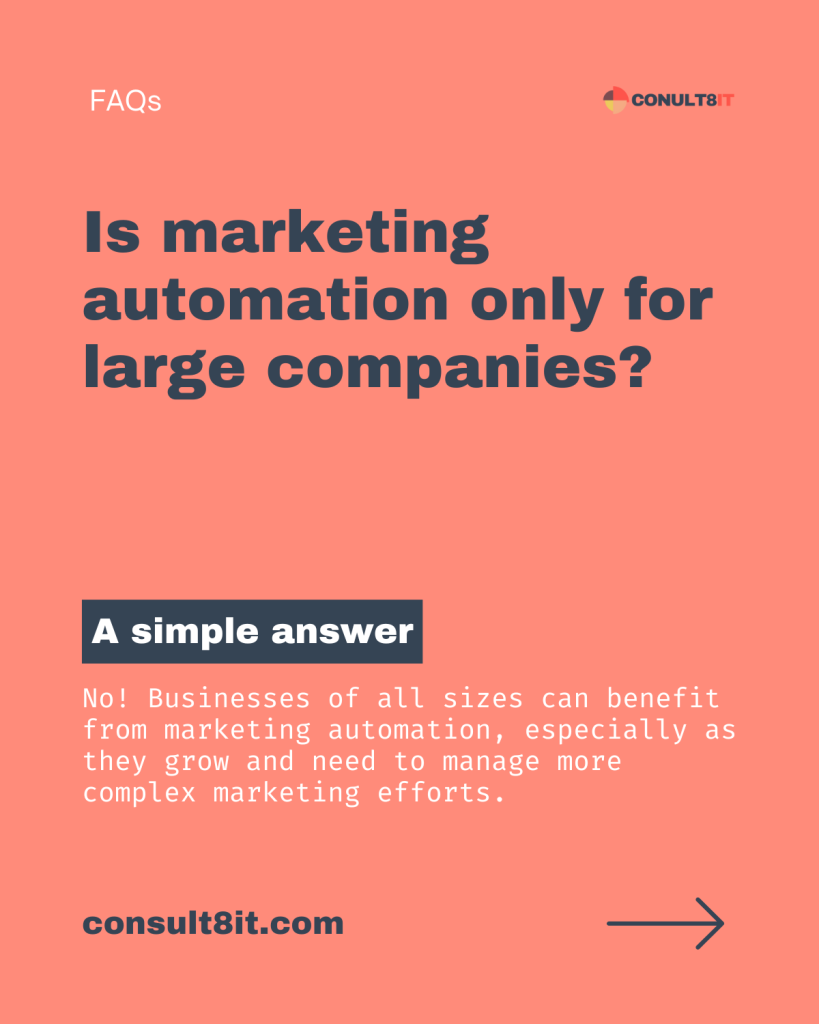
Over-Reliance on Automation
While automation is fantastic for efficiency, you must strike the right balance between automated processes and personal interactions. The customer journey is a series of stages that a customer goes through, from initial awareness to post-purchase interactions.
How to Maintain Balance:
- Combine Automation with Personal Touch: Use automation for routine tasks but ensure you’re still engaging with your audience personally, especially during critical moments such as sales enquiries or customer support. Consider automating initial responses, but make it a practice to follow up personally when necessary.
- Regularly Review Automated Campaigns: Keep an eye on your automated campaigns and analyse their performance. This will help you identify areas where a human touch could enhance the customer experience. For example, you might find that a personal phone call after an automated email can significantly improve customer engagement.
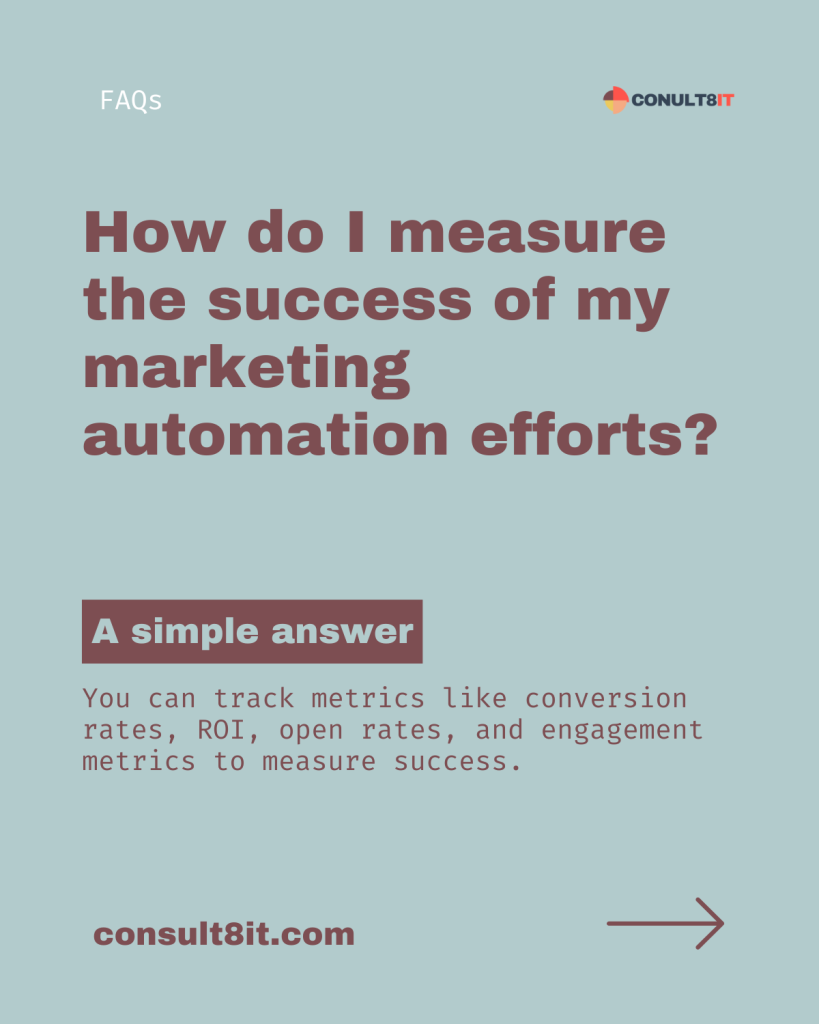
Success Stories
Real-World Examples: Benefits of Marketing Automation
Let’s bring the concepts to life with some real-world examples! In this section, we’ll explore how different businesses faced marketing automation challenges head-on and emerged victorious. These success stories not only highlight the power of automation but also offer relatable insights you can apply to your own marketing strategy.
Case Study 1: Dormify, an online lifestyle product retailer for millennials and young adults, was struggling with batch emails. They used marketing automation to segment their audience and create a personalised email journey. As a result, Dormify saw a 92% increase in email revenue within a year, with email visitors converting twice as much as the site average. Social media marketing also played a crucial role in their strategy, helping them manage multiple platforms and gain valuable audience insights.
Case Study 2: McAfee, a well-known antivirus and online security company, had an overwhelming number of leads. They used marketing automation to filter and nurture better quality leads.
These case studies illustrate how digital transformation can solve common business problems and drive growth. Whether it’s improving conversions, managing a large number of leads, or enhancing customer engagement, these companies have shown what’s possible with the right strategy and tools.
Case Study 3: Virtual Logistics Virtual Logistics, a Canadian firm and one of the leading data and technology integration services providers, has been around in the business world for more than 20 years and successfully developed an OmniChannel data integration platform. By deploying marketing automation, the company was able to gain agility and maximise efficiency. The company says that its landing pages are performing much better than ever before thanks to marketing automation.
Case Study 4: Thomson Reuters, a British and Canadian media company and predominantly a legal, financial, and professional publishing company, has implemented marketing automation to enhance its email marketing campaigns.
FAQs
These FAQs will help you along the way and clear up any confusion, whether you’re just starting out or looking to optimise your current strategy!
How does marketing automation work?
Marketing automation work involves collecting and analysing customer data from various interactions to create a comprehensive view of each customer. This technology streamlines processes like segmentation and targeting, allowing marketers to deliver personalized communications efficiently, whether for small or large audiences, thus enhancing overall marketing effectiveness.
1. What is marketing automation?
Marketing automation refers to the use of marketing automation software and technologies to manage repetitive marketing tasks and streamline workflows. This can include anything from email campaigns and scheduling posts on social media to lead generation and customer segmentation. The goal is to improve efficiency, increase engagement, and ultimately drive better results without overwhelming your team.
2. How can I choose the right automation tool?
Choosing the right automation tool can be a challenging task, but here are some tips to simplify the process:
- Assess Your Needs: Start by identifying your specific marketing goals and the tasks you want to automate.
- Compatibility: Ensure that the tool you choose integrates seamlessly with your existing systems, such as your CRM and analytics platforms.
- Marketing Automation Platforms: Look for marketing automation platforms that highlight core functionalities and capabilities such as streamlining marketing efforts through automation, improving efficiency, and enhancing customer engagement by leveraging marketing data for personalized communication and lead generation.
- User-Friendly Interface: Look for a solution that offers an intuitive interface and easy-to-use features, especially if your team is new to automation.
- Support and Training: Consider the level of customer support and training resources provided by the software vendor to help you get started.
3. What are the costs associated with marketing automation?
The costs of marketing automation can vary widely depending on the features you need and the size of your business. Some platforms offer basic packages that start at a low monthly fee, while others have more comprehensive solutions that can cost hundreds or even thousands of dollars each month. Be sure to factor in additional costs for training, support, and any extra features you might want to implement as your business grows. A marketing automation solution can help scale marketing efforts and improve ROI by eliminating manual tasks and allowing teams to focus on strategic initiatives.
4. How do I measure the success of my automation efforts?
Measuring the success of your marketing automation efforts involves tracking key performance indicators (KPIs) that align with your goals. Some important metrics to consider include:
- Lead Conversion Rate: The percentage of leads that turn into customers.
- Email Open and Click-Through Rates: These metrics indicate how engaging your email campaigns are.
- Return on Investment (ROI): Calculate how much revenue your automation efforts generate compared to their costs.
- Customer Engagement: Monitor how customers interact with your automated campaigns through website visits and social media interactions.
The benefits of marketing automation include enhancing digital marketing efficiency and improving campaign effectiveness, which can significantly maximize your return on investment.
5. Is marketing automation suitable for small businesses?
Absolutely! Marketing automation is not just for large enterprises; it can be incredibly beneficial for small businesses as well. In fact, automation can help small businesses make the most of their limited resources, speed up processes, and deliver personalised experiences to customers. By implementing automation, small businesses can compete more effectively and scale their marketing efforts without needing a large team.
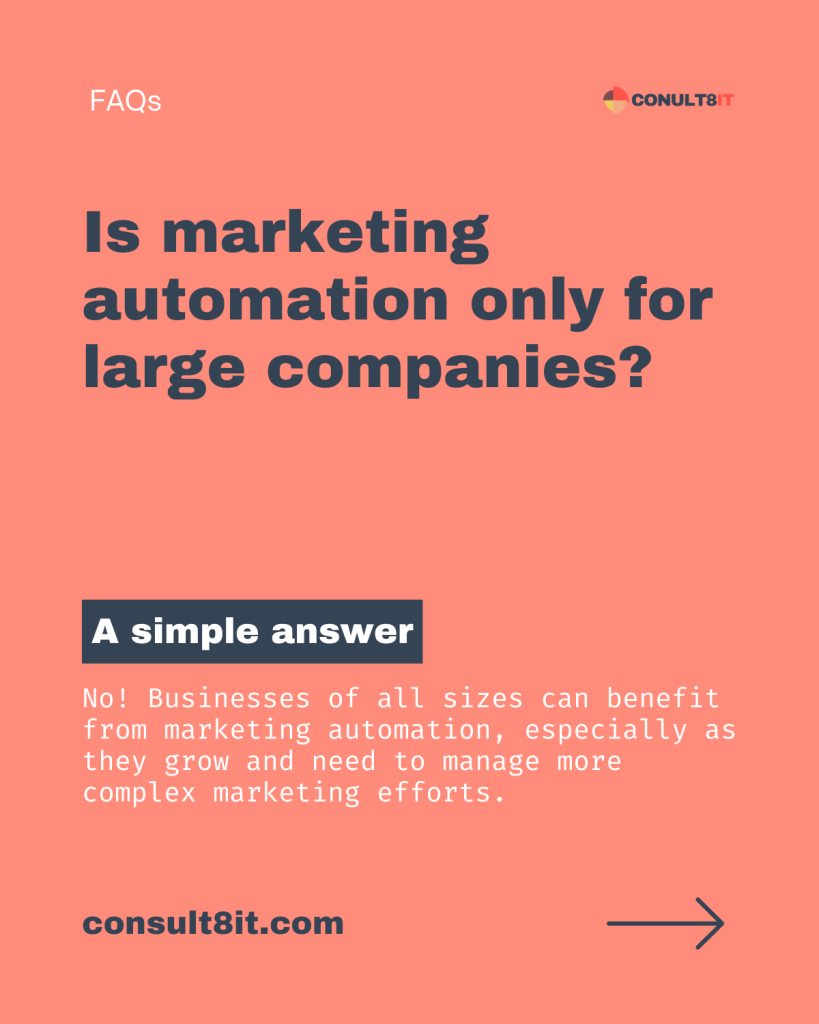
Final Thoughts
Indeed, when we talk about marketing automation, it’s easy to get lost in the jargon and the technicalities. But let’s strip it down to the basics. It’s about making things easier, more efficient, and, hey, let’s admit it, a bit more exciting.
Marketing automation significantly enhances customer engagement and operational efficiency, contributing to a better ROI for generating new leads for the sales team.
Sure, there are challenges. There might be days when you feel like you’re trying to solve a Rubik’s cube in the dark. But remember, every challenge is just an opportunity.
Looking Forward
The future of marketing? It’s dazzlingly bright. And with the right game plan, the future is yours for the taking.
Next Steps?
If you’re eager to explore how marketing automation can benefit your business, we’d love to help! Whether you have questions, need guidance, or want to learn more about our services, don’t hesitate to reach out.
Be sure to follow us on social media for the latest updates, tips, and insights. And for more in-depth content, consider subscribing to our newsletter!
Thank you for reading, and we look forward to seeing you next time.